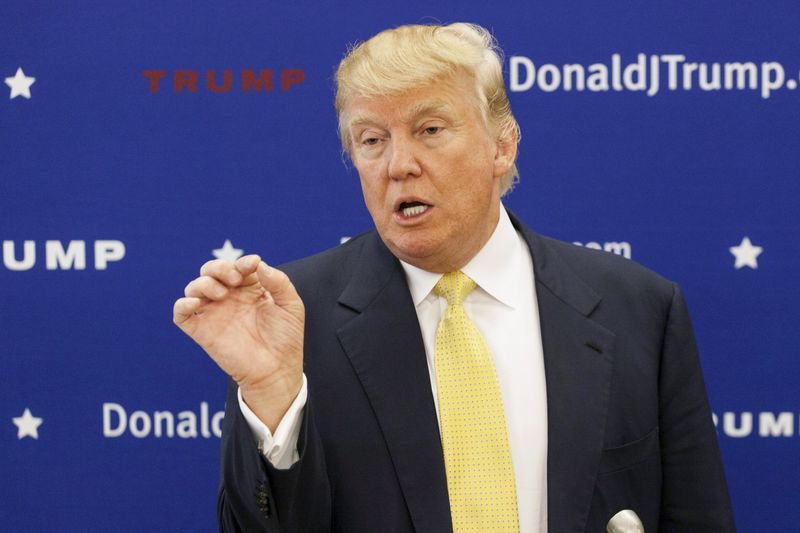(Bloomberg) -- The push to salvage a Pacific-rim trade pact will come to a head this week as nations diverge on whether it should be preserved, abandoned or renegotiated from scratch after President Donald Trump pulled the U.S. out of the deal.
The Asia-Pacific Economic Cooperation leaders’ meeting in Danang, Vietnam, will bring together the remaining 11 members of the Trans-Pacific Partnership, with both Japan and Vietnam raising the prospect of concluding a deal. Japan -- the world’s third-largest economy -- continues to advocate for the TPP amid warnings that its collapse, or even a move to redo it, would hurt growth.
“We want to maintain the high standard and find a way to seal the deal between the 11 countries,” Japanese Economy Minister Toshimitsu Motegi said last week. “A list has emerged of sections that each country wants to freeze and we have made progress on cutting it back. What’s left are issues that are important to each country, or that they are particularly concerned about.”
The pact would have covered 40 percent of the global economy, going beyond traditional deals by including issues like intellectual property, state-owned enterprises and labor rights. After years of painful negotiation, and close to the ratification stage at thousands of pages, it was thrown into disarray when Trump withdrew the U.S. in one of his first acts as president this year, arguing the move was needed to protect U.S. jobs.
The agreement was seen as a hallmark of U.S. engagement with Asia under the prior administration and a buffer against China’s rising clout. Then-Defense Secretary Ash Carter called it more strategically important than having another aircraft carrier battle group in the Pacific. Since the U.S. withdrawal, remaining nations have struggled to take the deal forward.
Read more: Free Trade and Its Foes
Two Japanese officials, speaking on condition of anonymity, said last week they expected a TPP-11 deal to be reached in Vietnam, with one adding that about 20 issues still needed to be resolved.
The logic for a deal remains compelling, Australian Prime Minister Malcolm Turnbull said Saturday. The TPP would improve market access and support the rule of law -- and the world was “dangerously short of both,” he said.
TPP was nonetheless built in large part around U.S. participation. And with the world’s largest economy gone, others have voiced concerns. The pact’s second-largest remaining economy, Canada, is pushing to beef up what it calls “progressive” elements of the deal while maintaining market access, warning that could take some time.
“What is very much alive is the objective of open, principled, rules-based trade. The vehicle, the instrument to get there -- that’s what the leaders will have to discuss,” Trade Minister Francois-Philippe Champagne said in an Oct. 30 interview. Canada has hosted talks to save the TPP, and Champagne said he wasn’t proposing a full-scale renegotiation. “Certainly, I think it’s months, if not years, ahead in terms of bringing everyone along.”
New Zealand
One key TPP hurdle was removed last week when New Zealand Prime Minister Jacinda Ardern announced a ban on foreigners buying existing homes, a law set to be rushed through to essentially take effect before TPP would.
Still, Ardern told reporters in Sydney on Sunday that New Zealand would pursue changes to the deal’s investor-state dispute-settlement clauses “as far as we are able,” including at APEC. Similar concerns in Europe almost scuttled the Canada-EU trade deal, which recently took provisional effect. One of the Japanese officials played down the risk of a New Zealand holdout, saying they were an agriculture exporter for which the pact was a good opportunity.
Peru meanwhile is more focused on talks toward a trade-and-investment agreement between a smaller group of countries than trying to save the TPP without the U.S., a Peruvian official said, speaking on condition of anonymity.
Nafta Watch
Mexico, the TPP’s fourth-largest economy, has worked with Japan and others to reach an accelerated TPP pact. Mexico and Canada, however, are in the midst of talks to keep Trump from walking away from another deal -- the North American Free Trade Agreement, for which the TPP was a de facto modernization. Nafta talks have stalled on five contentious U.S. proposals, with the next round set for later this month in Mexico.
Trump, during a visit to Japan as part of his first trip to Asia as president, again chided the country for what he said was an unfair trade advantage, especially in the auto sector. He told business leaders Monday that TPP was “not the right idea” and he envisioned easing trade restrictions in another way, outside the TPP framework, without going into detail.
While some hope for a quick deal in Vietnam, Canada is pushing for certain things to be added to the pact, Champagne said. It is seeking to maintain market access components while strengthening elements such as environment and labor provisions and adding others to reach a “better deal.”
The remaining TPP countries have varying views, he said. “There is a spectrum -- if we think negotiating with three is difficult, imagine negotiating with 11,” he said, an allusion to Nafta talks, adding: “if you look from a Canadian perspective, it’s never been a better time to diversify.”
David Mann, chief Asia economist at Standard Chartered (LON:STAN) Plc, has said that reaching an agreement would hinge on how the countries agreed to treat trade in services. Motegi, Japan’s minister, said the countries have had four meetings towards saving the deal, which he said would boost opportunities for small and medium-sized companies to expand in Southeast Asia.
“A borderless society is coming, in terms of information,” Motegi said, adding: “Of course it’s not only about trade in things, but the movement of people and information. I think it will bring merits in various areas. This is a global age, and Asia is the center of growth. Japan can take advantage of that growth -- that’s an extremely important merit.”
